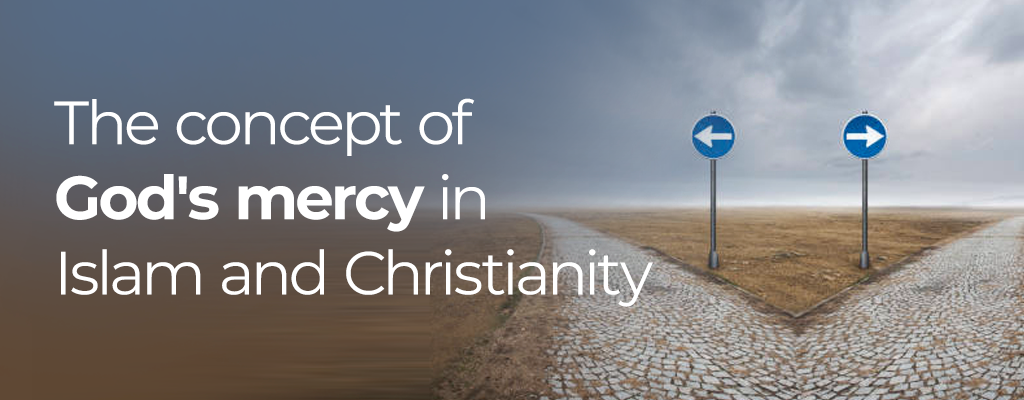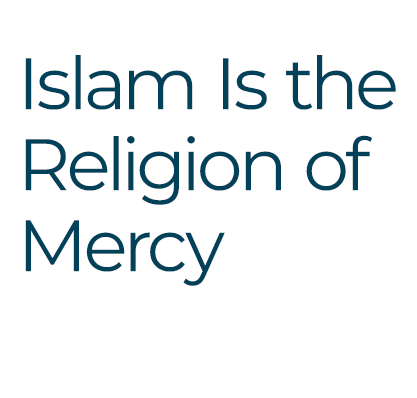Muslims and Christians are ordered to believe in one true God, the Lord of heavens and earth. They agree that God created us to examine us in this life. Such an exam means that we are given the freedom of choice and the ability to do sins and disobey our Lord. At this point, it comes the crossway.
Muslims and Christians differ in how they describe God. One of the major differences between Islam and Christianity is how each religion views the concept of God’s Mercy. How does God deal with sins? What is the way to salvation? In the following article, we will explore these questions and more.
Salvation in Islam And Christianity:
In Islam, salvation is a personal choice. The belief alone is not enough and good deeds alone are not enough. There are at least three elements needed for salvation:
- Belief in Allah and His Messenger; Muhammad (ﷺ),
- Good deeds [Following the teachings of Allah and His Messenger (ﷺ) and living by them],
- Allah’s Mercy after all of that.
The Prophet (ﷺ) said:
Do good deeds properly, sincerely and moderately, and receive good news because one’s good deeds will not make him enter Paradise.” They asked, “Even you, O Allah’s Messenger (ﷺ)?” He said, “Even I, unless and until Allah bestows His pardon and Mercy on me.” [Hadith]
In Christianity, the theory is that Adam and Eve sinned by eating the forbidden fruit. Their transgression is inherited by all their offspring. We are all born bearing the burden of the original sin. To attain forgiveness in Christianity, the most important is the belief in the death of Jesus on the cross for our sins. It is this spilling of Jesus’ innocent blood that saves humanity. Jesus has taken the punishment that humanity deserves because of its sin, once and for all. “God was pleased to have all his fullness dwell in Jesus, and through him to reconcile to himself all things, whether things on earth or things in heaven, by making peace through his blood, shed on the cross.” [Colossians 1:19-20]
God’s Nature: A God Who Loves to Pardon VS A God Who Is Delighted in Blood
Prophet Mohammad (ﷺ) teaches us that God loves to pardon and loves to show Mercy. It is narrated that:
…No one is more fond of accepting an excuse than Allah, on account of which He has sent messengers, announcers of glad tidings and warners”. [Hadith]
He taught his wife, Aisha, to say that beautiful prayer
O Allah, indeed You are Pardoning, [Generous,] You love to pardon, so pardon me”. [Hadith]
So, Our God is All-loving. He loves His creation and forgives them and none can question Him. Do you know that the statement that “Allah is Most-Forgiving and Merciful” is found no less than 81 times in the Holy Quran? Almost every chapter of the Quran starts with this verse: “In the name of Allah Most gracious Most merciful”.
His huge Mercy is manifested through sending guidance to humanity to bring them out of the darkness of falsehood,
And We have not sent you (O Muhammed) except as mercy to the worlds.” [Qur’an 21:107] (5)
On the other hand, Paul, in his letters, makes it very clear that blood is a must to take away the sins of humanity, not the blood of a normal sacrifice but the blood of a perfect sacrifice.” and without the shedding of blood there is no forgiveness”. [Hebrews 9:22]
Since only God is perfect, it must be He then who must take human form, and allow himself to be tortured and killed for the faults of his creatures. Thus, we enter the truly mind-blowing vicious circle of a God who punishes Himself to forgive the men and women who offended Him.
In Islam God’s Mercy Overpowers His Anger
Imagine a child has made a mistake, which, he knows, will arouse the anger of his mother. Trying to reform what he did. He comes to his mother crying and begging for pardon, promising not to do that again. What will a loving mother do? Will she punish him or will she forgive him?
The Prophet (ﷺ) said,
When Allah completed the creation, He wrote in His Book which is with Him on His Throne, “My Mercy overpowers My Anger.” [Hadith]
This means that if we sin and then repent sincerely to Him, He accepts our apology and forgives us. He loves to pardon. His mercy is much greater than His anger. In the Quran in Chapter 6 verse 12, we read:
…He has decreed upon Himself mercy…” [Qur’an 6:12]
Moreover, Anas Ibn Malik, one of the Prophet’s (ﷺ) companions, heard him saying:
Allah, the Exalted, has said: ‘O son of adam, I forgive you as long as you pray to Me and hope for My forgiveness, whatever sins you have committed. O son of ‘Adam, I do not care if your sins reach the height of the heaven, then you ask for my forgiveness, I would forgive you. O son of ‘Adam, if you come to Me with an earth load of sins, and meet Me associating nothing to Me, I would match it with an earthload of forgiveness.” [Hadith]
On the contrary, the Christian scheme of salvation requires that there exists a conflict between God’s mercy and justice. God cannot tolerate sin. But He wants our relationship with Him to be restored. So something has to be done about the sin. His justice requires that the sinner must be punished. But His mercy requires that He forgive the sinner. Now, MERCY VS JUSTICE! Thus, the suicide of God is presented as the exit out of this dilemma.
Sin Is Not The END!
In Islam, the story of creation is different from that in Genesis. After eating from the forbidden tree, Adam and Eve regretted their sin. They both repented sincerely and God accepted their repentance. They set an example for us to follow when we fall into the pitfall of sins. Thus, there is no original sin that is passed on from one generation to another. The Quran emphasizes the fact that:
…And no bearer of burdens will bear the burden of another…” [Qur’an 17: 15]
More importantly, the wages of sin are not death. Sin is a means for us to grow closer to God. Yes, seriously, if you sin, you could grow closer to God by repenting. When a man sins, he should regret, repent, reform, and turn to God directly, asking Him for pardon. This process makes God happy because the sinner submits more to His lord and acknowledges the power of God above him who can punish or forgive him. The sinner then repents directly to Him, not to Muhammad, Abraham, or Jesus.
Man is programmed to sin. The best of the sinners are those who repent! Abu Huraira reported that Allah’s Messenger (ﷺ) said:
By Him in Whose Hand is my life, if you were not to commit sin, Allah would sweep you out of existence and He would replace (you by) those people who would commit sin and seek forgiveness from Allah, and He would have pardoned them.” [Hadith]
Final Call
In conclusion, one of the main characteristics of true religion is that it leads us to glorify God and think highly of Him. Cannot God forgive sins without any ransom? Oozing blood gushing from the veins of a physical body has no link to mercy. The Mercy of God does not demand that Jesus, Muhammad, or God himself should die in order to secure eternal life and salvation. Jesus clearly mentions that he wants mercy and not sacrifice, so why does Pauline’s law make Jesus into a curse by becoming the ransomed sacrifice to pay for humanity’s sins?
Now, my dear reader, the two roads split in front of you. Which way appeals more to your heart and mind? For salvation, will you rely on ransomed blood or will you worship your Lord (the God of Abraham, Isaac, and Jacob), follow His apostle Mohammed, and have trust in the Mercy of God? Think deeply, do your research, and ask God to open your heart to accept the truth.
Say, “O My servants who have transgressed against themselves [by sinning], do not despair of the mercy of Allah. Indeed, Allah forgives all sins. Indeed, it is He who is the Forgiving, the Merciful.” [Qur’an 39:53]
“For I desire mercy, not sacrifice, and acknowledgment of God rather than burnt offerings” [Hosea 6:6]
“But go and learn what this means: ‘I desire mercy, not sacrifice.” [Matthew 9:13]
References:
(1) The Concept of Mercy in Islam and Christianity, Ahmad Pandor, P. 29,31,32
(2) New International Versions of Matthew, Hosea, Colossians and Hebrews
This article in other languages:









